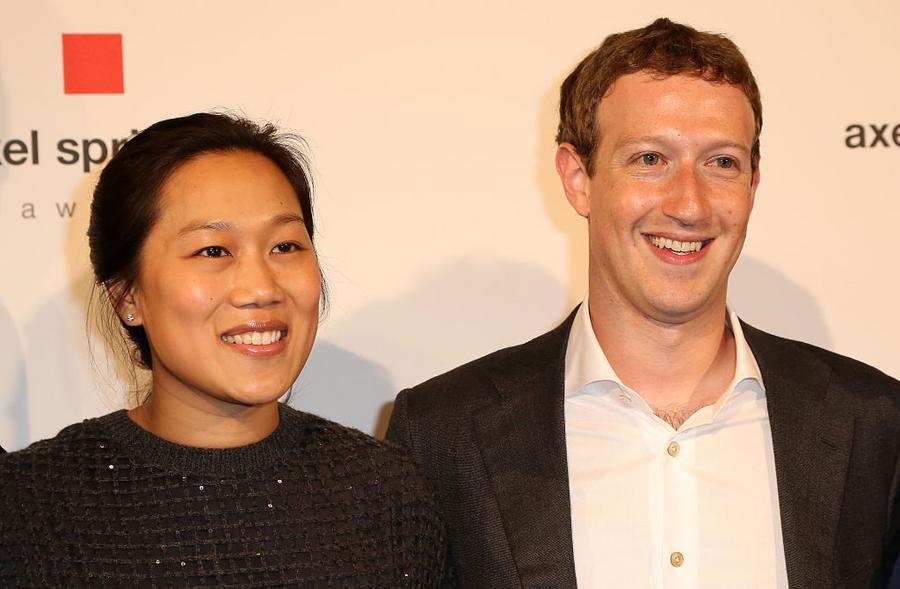Last October, Mark Zuckerberg and his wife, Priscilla Chan, announced that they would be selling up to 75 million shares of Facebook, worth more than $12 billion at the time, between then and March 2019 to fund the Chan Zuckerberg Initiative. The overall goal of CZI is to cure disease. Not one specific disease – but all disease by the end of the century. Chan stopped practicing medicine last year to run CZI full time. Since the first of the year, Zuckerberg has sold another nearly 29 million shares to give more than $5.3 billion to CZI.
The Chan Zuckerberg Initiative has 250 employees, half of which come from the technology sector. As far as nonprofits go, CZI is still in its early days, however, it has been around long enough to have a handful of core ideas that it is beginning to test in the real world. The initiative was founded about two and a half years ago.
One CZI's missions is "supporting scientific research to cure, prevent and manage all diseases in our children's lifetime." Zuckerberg believes that we have a real chance of preventing, curing or managing most diseases in the next century, especially heart disease, cancer, strokes, neurodegenerative, and infectious diseases.

Adam Berry/Getty Images
CZI is one of the biggest investors in the Human Cell Atlas, which has an objective to map out every single cell in the human body. In doing so, that would create a new data set that could not be achieved by a single scientist.
Another one of CZI's projects is a $12.5 million effort to bring more engineering tools to the imaging field. Applications are currently being accepted. Once that period closes, 10 to 15 imaging scientists will be given funding for three to five years for research at imaging centers across the U.S.
A few other things CZI has accomplished:
The first donation was a $600 million investment in BioHub. BioHub is a project that brings together scientists and engineers from Stanford, Berkeley, and UC San Francisco to understand and treat disease.
CZI acquired a search engine that is working to help scientists find relative papers easier. It is called Meta.
CZI, in conjunction with New York's Cold Spring Harbor Laboratory, is helping develop its bioRxiv service for biologists to share and search for scientific papers.
CZI is working with a startup called protocols.io, which is building a place for researchers in the life sciences field to share information about methods.
Most recently, CZI announced that it will provide a $150,000 grant and join an advisory group for ASAPbio – which aims to bring more transparency to life sciences communication.
CZI is attempting to figure out how to support scientific efforts that are already being worked on. Chan said, "We believe that greater collaboration across science and technology is key to giving more people an equal shot at living healthy and prosperous lives. We're proud to play a role in making that happen."
CZI is a separate and distinct entity from Facebook. Zuckerberg and Chan are very involved in CZI, it is not a token philanthropic effort that they throw money at and forget. They are involved in meetings and in shaping the directions of efforts. Zuckerberg attends a number of meetings including the board meeting for Biohub, two vert involved sessions on the Human Cell Atlas each year, and he reviews some of the newer things CZI is getting involved in like criminal justice and affordable housing.
Although Zuckerberg is involved and attends meetings, Chan is the one who runs the show day to day at CZI. When she isn't traveling she works out of the CZI offices and makes herself accessible for questions or working through problems. She sits out in the open, so she can chat with employees rather than in an office.
It is easy for the scientists and engineers to get mired in the technology. But it is Chan and her background in medicine that grounds them and brings the human aspect to the forefront.
/2016/09/GettyImages-512267530.jpg)
/2018/03/GettyImages-688402250.jpg)
/2020/01/GettyImages-455703066.jpg)
/2015/12/GettyImages-499667152.jpg)
/2017/09/GettyImages-688399484.jpg)
/2017/12/GettyImages-489461608.jpg)
/2010/11/josh.jpg)
/2023/10/elaine-wynn.jpg)
/2021/10/John-Boyega.jpg)
:strip_exif()/2020/06/taylor.png)
/2020/10/cate.jpg)
/2010/11/russell-armstrong.png)
/2021/04/William-Levy-1.jpg)
/2014/05/Daisy-Ridley.jpg)
/2020/03/steve-wynn.jpg)
/2018/04/GettyImages-942450576.jpg)
/2013/07/courtney-henggeler.jpg)
/2022/05/Nayib-Bukele.jpg)
/2010/03/nc.jpg)
/2021/11/rich-vos.jpg)
/2012/08/broner.jpg)
/2014/06/oscar.jpg)
/2010/05/Lenny-Kravitz-1.jpg)